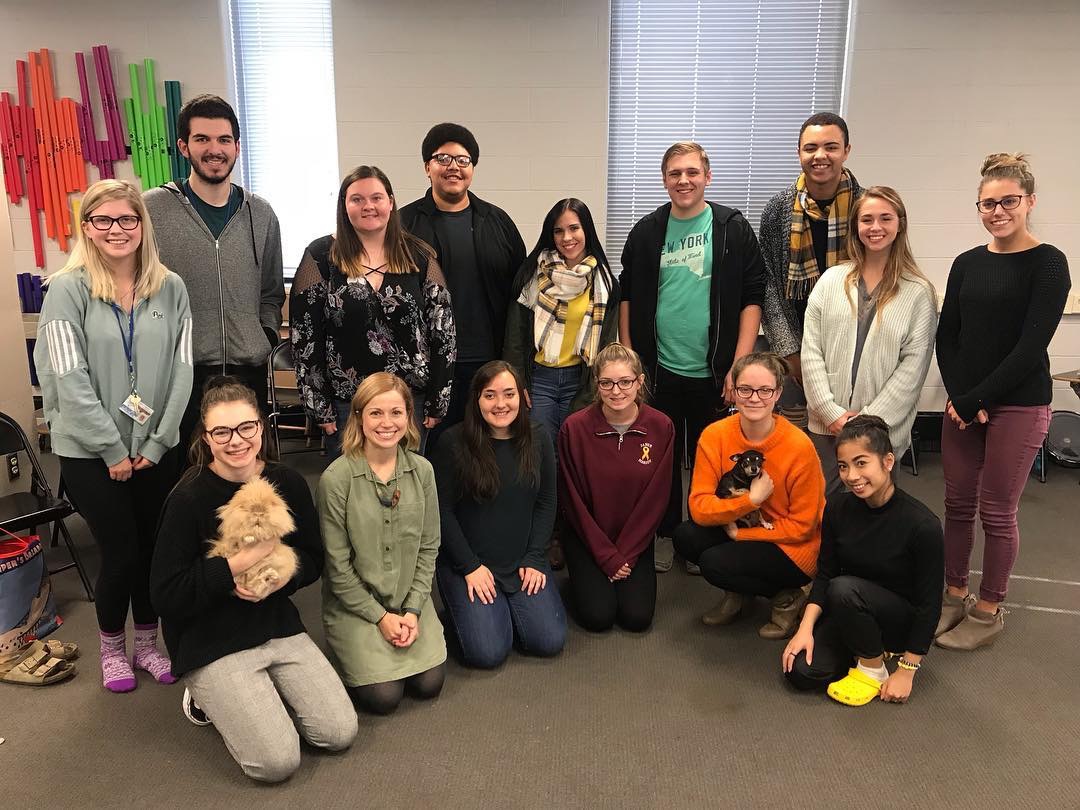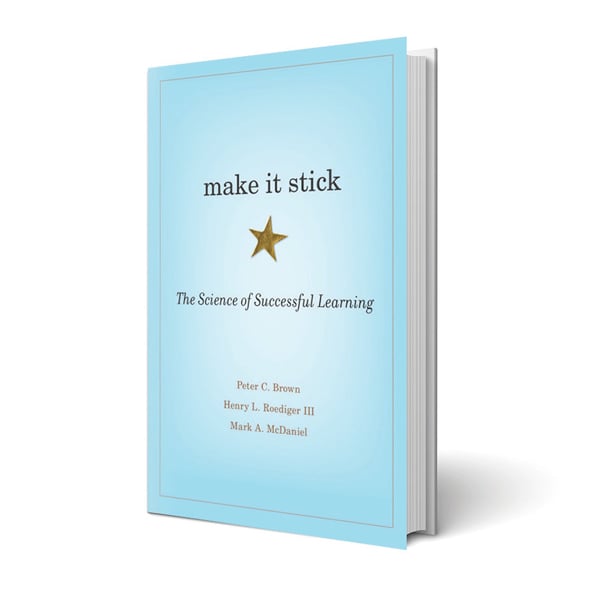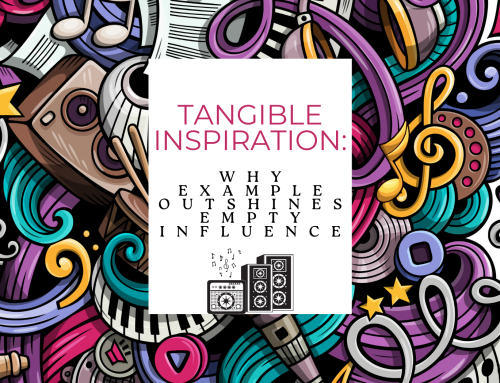Welcome to your first year as a music education major, which I promise will be a whirlwind of learning and performing that is both exciting and stressful. In this blog post, I offer four big tips for not only surviving but THRIVING in your first year.
Table of Contents
Understand How Learning Works
Two winters ago, I read an amazing book that changed how I viewed learning, “Make It Stick” by Peter Brown, Henry Roediger III, and Mark McDaniel. Here are six points worth pondering when attending classes this year.
1. To Learn, Retrieve.
The authors state, “Recalling facts or concepts or events from memory is a more effective learning strategy than review by rereading (p. 3).”
This means that after you read or complete a listening assignment for class, take a few minutes to jot down key concepts or characteristics you can remember. Doing so will help you remember the information much better, AND it’ll be in your own words. This will be extremely useful for your music history class as well as core classes outside of music education.
2. Engage in Interweaved, Varied Practice.
The authors say, “When you space out practice…retrieval is harder but the effort produces longer lasting learning (p. 4).” What great advice to guard against “binge practicing”! Typically music education majors should practice two hours a day. If you follow this advice, it means you PRACTICE. EVERY. DAY. But…consider 30 minutes before your first class, maybe another 30 between classes, and an hour in the evening. This advice works really well for other classes as well. When you begin learning secondary instruments, it will be wise to practice every day to gain the best results.
3. Embrace Difficulties.
Many of us enter college fresh off of being the best musician in our cohort. It can be quite a shock to learn that everyone around you is just as good or BETTER than you. Don’t fret! The authors remind us that, “making mistakes and correcting them builds the bridges to advanced learning (p. 7).” DON’T expect to be perfect in college. Every time you earn a grade that’s lower than you would like, or don’t get into an ensemble you like, think about what you have learned from the experience. How can you grow? That will be much more effective than beating yourself up or simply giving up.
4. Avoid Illusions of Learning.
Learning should be easy, right? WRONG. “When learning is harder, it’s stronger and lasts longer (p. 9).” Know that college is a time for you to grow and don’t be surprised if learning is hard sometimes. Also, this part of the book busts an illusion of learning that I thought was supposed to be helping me all my life. Highlighting DOES. NOT. WORK. My entire educational career exploded in my face when I read this. So, remember point 1 of this article (“To Learn, Retrieve”). THAT is the best way to retain new information, not endlessly coloring your textbooks with highlighters.

Martina with her music ed freshmen
5. Increase Your Abilities.
The authors recommend that “putting new knowledge into a larger context helps learning (p. 6).” YES! Every class you take, consider how it has implications for your future career. Working on your natural minor and major scales in thirds? Where do these patterns exists in the repertoire for your instrument? Think about how the tedious, but practical skill of playing scales fits into the bigger picture.
6. Make It Stick.
“Learning is stronger when it matters, when the abstract is made concrete and personal (p. 11).” No matter what class you take, MAKE. THE. CONNECTION. I don’t care how far from music the subject matter is. For example, I had to take a history class about the U.S. Civil War during my undergraduate degree. The class required accessing historical records and writing a paper. What on earth could a music major find relevant in this? Well, I had learned during class the importance of music for marching into battle. I searched old historical records about drummers and wrote a paper as a series of letters written by a drummer boy. Not only did I learn more about the role of music during this time period, but I actually had FUN doing the assignment. Don’t rely on your teacher to make things relevant for you (although that’s always nice if it happens). You are in control of your learning and your degree. FIND the relevance.
Exercise Time Management Well
I know, I know. For us creative-types, it may seem difficult to organize. However, I do not think that organizing your time well means you forgo your innate creativity. As a music education major, you are actually doing the coursework of two majors: music AND education. Any 18–22 credit people out there? Raise a hand and look around. I guarantee you’ll have plenty of company.
Staying organized keeps your sanity. This includes giving yourself time for SLEEP and FOOD. So often we forget the basic things we need to stay healthy. As an experiment, I challenge you to complete the attached time log for a week*. BE HONEST. Once a week has passed, ask yourself the following questions
- What surprised you about how you spent your time?
- What’s one thing you are proud of in terms of how you spent your time?
- What is one thing you want to change about how you used your time?
You’ve probably heard before that creating a healthy budget starts with taking into account how much money you actually spend. The same goes for time management. You can only arrive at a healthy plan once you understand how you actually spend your time.
(*Time Tracking Sheet borrowed from UK 101, a freshman orientation course I teach at UK)
Keep an Open Mind
During my first two years as a music education major, I was hell-bent on becoming a clarinet professor. I figured that I would graduate and teach band for a bit, then return to graduate school to get the necessary training I needed to achieve that goal. My junior year changed everything. I took a general music methods class and it was like my world of black and white turned into full color. Something about general music spoke to me, excited me, and, as you can see if you visit my faculty page, I am now a general music specialist, teaching the same kind of class that changed my life so many years ago.
So, be open to new experiences and be open to altering your path. Some of you may end up exactly where you thought you’d be upon entering college, but most of you won’t. And guess what? THAT’S OK. I don’t know anyone whose career path was perfectly straight. Talk to any of your college professors, and you’ll learn that each has a different story to tell. Be open to classes you think you won’t be interested in, as you may surprise yourself. I also recommend taking at least one world music class. My biggest regret from my undergraduate experience was NOT doing that. Having new experiences broadens your perspective and your musicianship.
Be Yourself and Be Safe
The beauty of music school is that you are surrounded by all the “nerdom” that you only had a taste of in high school (at least that was my experience). Being on your own (if you opt not to live at home) also means that you have the time and space to figure out who you are. So, use your head when you get into situations, but ALWAYS listen to your gut. This applies not only to your academic career, but also the relationships you have throughout college and social situations you may get into.
1. If you don’t want to go out, don’t go out.
FOMO or Fear of Missing Out can be a huge distraction while you are at school and can be catastrophic for a music education major with such a packed academic schedule. Do yourself a favor and make a rule to only check social media/your phone at certain times during the day. You don’t have to live your life to please others and if others are pressuring you to do things you don’t have time for or that you don’t want to do, you are allowed to say no—with no further explanation.
2. If you do go out, always follow the buddy system.
That means you and a friend have promised to look out for each other all night, or you at least have someone you are calling or texting so SOMEONE knows where you are and who you are with. Sexual assault is no joke, and although I think that people should be taught to respect other’s boundaries, the sad fact is that many are not taught that. It’s best to be proactive and aware. Many universities have free shuttle services or safety escort services if you find yourself alone and needing to get home.
3. Everyone has stress, anxiety, and depression at some point.
Know that you are not alone, you are not an outlier, and you are not broken. It’s important to use campus resources such as counselors to help you process the new stresses that you experience being in college. There is nothing wrong in seeking support when you need it.
You are embarking on a life-changing, exciting time in your life. Know that success is measured in many ways. Learn hard, be passionate, and enjoy the ride!
Love,
Dr. Vasil





Leave A Comment